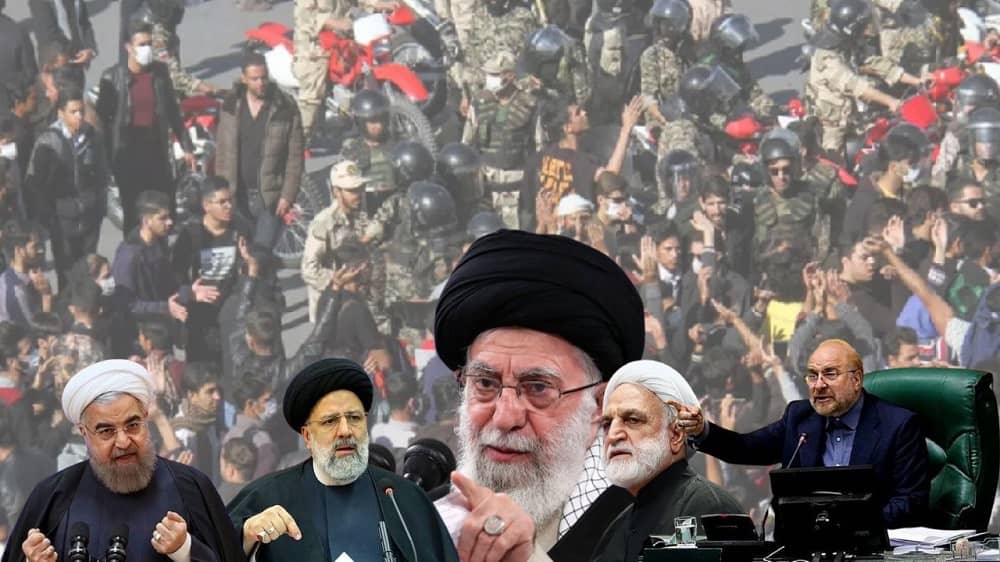
In an escalation of Iran’s ongoing political turmoil, the country finds itself embroiled in a massive financial scandal involving the Debsh Tea Company, totaling a staggering 3.7 billion dollars.
This scandal has exposed deep fissures within the upper echelons of the Iranian regime, particularly between the government officials and the judiciary.
The scandal came to light amidst claims by President Ebrahim Raisi’s administration that it acted as a whistleblower in the case. However, these claims were publicly refuted by Gholamhossein Mohseni Ejei, the head of the Judiciary. In a meeting with students on December 7, Ejei starkly contrasted the government’s narrative, stating, “No managers have been referred to the Judiciary,” despite the government’s claim of dismissing 60 individuals linked to the corruption.
This contradiction was further highlighted by Mohammad Mohajeri, a member of the editorial board of KhabarOnline. Mohajeri accused the Minister of Economy of incompetence and of trying to deflect the issue by labeling it a media hoax. He asserted that over 90% of the corruption occurred under Raisi’s government, accusing it of both ineptitude and attempts at concealment.
Today, in his pursuit of staying in power, #Khamenei spares no one. As the #IranianResistance movement gains traction among the people, the regime’s process of contraction and self-destructive tendencies will accelerate even further.https://t.co/XZu1kg6vKt
— NCRI-FAC (@iran_policy) August 14, 2023
The scandal has triggered a blame game between current and former government officials. Associates of President Raisi are pointing fingers at the previous administration led by Hassan Rouhani, while Rouhani’s supporters question why Raisi, then Chief Justice, did not take action earlier if the corruption occurred during Rouhani’s tenure.
State-run website Ensaf News relayed criticisms from a source close to the Rouhani administration, who denounced the current government’s tactic of blaming predecessors with distorted facts. The source demanded transparency, questioning why the corruption, if begun in 2019, was not reported and made public by the then-leaders of the Judiciary and National Inspectorate Organization, who are now key figures in Raisi’s government.
Further complicating the situation, Ruydad 24, another state-run media outlet, reported on the longstanding feud between Raisi and Ejei, dating back to 2014. The report suggests that disagreements were significant enough for Raisi to attempt to remove Ejei from his position when he became president of the Judiciary in 2018. The report also noted Ejei’s indirect criticism of Raisi’s government for blaming the previous administration for its own failings.
Watch our latest short #video and judge how #MahsaAmini's murder and the following #IranProtests have increased infighting among the regime’s ranks pic.twitter.com/DYTiRhflKY
— NCRI-FAC (@iran_policy) September 28, 2022
This internal conflict is not limited to the executive and judiciary branches. On December 6, Etemad Online reported on the growing discord between Parliament Speaker Mohammad Bagher Ghalibaf and President Raisi. Despite public statements of unity, the media affiliated with each leader has intensified its criticisms of the other, revealing underlying tensions.
All these conflicts, played out through state-run media, highlight a deeper issue within the Iranian regime. While the leaders of the branches of power publicly claim to prioritize resolving people’s problems, a closer look at their four-decade track record reveals a focus not on public welfare but on maintaining power amid growing public discontent. The Debsh Tea corruption scandal serves as a stark reminder of the regime’s entrenched issues of corruption, power struggles, and indifference to the plight of its citizens.

MEK Iran (follow us on Twitter and Facebook), Maryam Rajavi’s on her site, Twitter & Facebook, NCRI (Twitter & Facebook), and People’s Mojahedin Organization of Iran – MEK IRAN – YouTu
